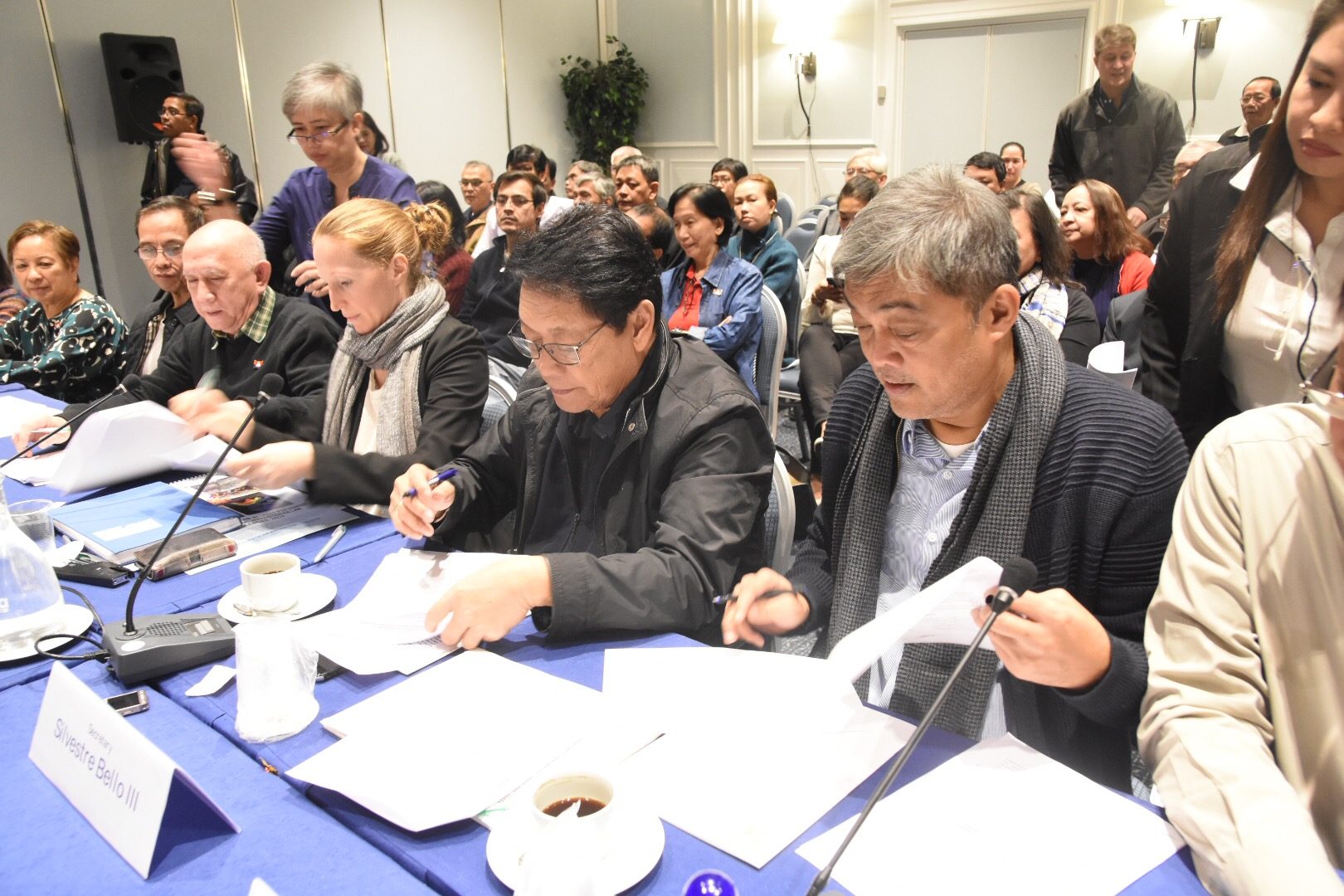SUMMARY
This is AI generated summarization, which may have errors. For context, always refer to the full article.

MANILA, Philippines – The languishing Joint Monitoring Committee (JMC), the body tasked to monitor and investigate human rights abuses of security forces and communist rebels, was given a new lease on life amid a threat that the ongoing ceasefire will collapse.
Negotiators of the government and the communist National Democratic Front (NDF) on Saturday, January 21, signed supplemental guidelines that will make the JMC fully operational.
It is hailed as the first major achievement of the 3rd round of talks held Rome, Italy following a threat that the New People’s Army (NPA) wants to withdraw the 5-month-old declaration of unilateral and indefinite ceasefire because of the delayed release of political prisoners and alleged ceasefire abuses by the military. (READ: No ceasefire expected soon as NDF extend timeline of talks)
Key to the activation of monitoring body is a funding from Norway, the 3rd country facilitating the talks to end Asia’s longest-running communist insurgency.
Hopes up for a bilateral ceasefire deal
Government chief negotiator Silvestre Bello III is hoping that the activation of the JMC will bode well for the possible elevation of the current unilateral ceasefires – separately declared by the military and the NPA – into a bilateral ceasefire deal that will put in place common rules on the ground.
A bilateral ceasefire deal is critical in making sure misencounters on the ground – which could hurt ongoing talks – are avoided.
“This should be taken as an incentive for us to work harder in the remaining days of this round of talks, especially on our efforts to put in place a joint ceasefire agreement – a peace dividend that our people have been waiting for,” Bello said.
NDF chief negotiators Fidel Agcaoili is counting on the JMC to investigate alleged human rights violations of state forces, pointing out the arrests of suspected communist rebels based on allegedly trumped up charges. Rights group Karapatan claimed reporting more than 4,000 violations since 2004.
“The first big test of the seriousness of the GRP in these negotiations is compliance with CARHRIHL (Comprehensive Agreement on Respect for Human Rights and International Humanitarian Law). For if the GRP cannot fulfill its obligations in an agreement already signed, what is our guarantee with regard to future agreements?,” Agcaoili said.
The military also accused the NPA of ceasefire abuses such as the burning of buses and alleged extortion on business owners. The Department of National Defense had submitted to the government panel its inputs to the proposed bilateral ceasefire agreement.
First substantive agenda
The JMC was created after the government and the NDF signed in 1998 the Comprehensive Agreement on Respect for Human Rights and International Humanitarian Law (CARHRIHL), the 1st of the 4 substantive agenda to be negotiated before a peace deal is finalized. (READ: NDF not ready to sign final peace deal before 2020)
CARHRIHL encourages victims of human rights violations and abuses by security forces and the NPA to file complaints in order to receive indemnification.
“Persons liable for violations and abuses of human rights shall be subject to investigation and, if evidence warrants, to prosecution and trial. The victims or their survivors shall be indemnified. All necessary measures shall be undertaken to remove the conditions for violations and abuses of human rights and to render justice to and indemnify the victims,” reads the CARHRIHL.
Bello said new laws on human rights (HR) and international humanitarian law (IHL) will aid the full operation of the JMC, citing the law against enforced disappearance, Anti-Torture Act, IHL Act, Human Security Act, Writ of Amparo, and the Writ of Kalikasan, among others.
The 3 other agenda are the follow: Comprehensive Agreement on Socio-Economic Reforms (CASER), Comprehensive Agreement on Political Reforms (CAPR), and Comprehensive Agreement on End of Hostilities and Disposition of Forces (CAEHDF). – Rappler.com
Add a comment
How does this make you feel?
There are no comments yet. Add your comment to start the conversation.